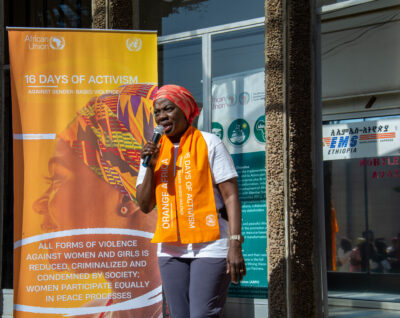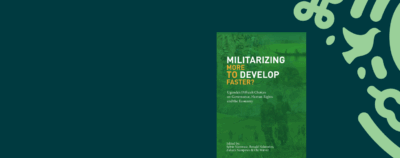We are living in a moment of intense anxiety about the fate of democracy around the world. Democratic institutions are under siege, and the fabric of democratic societies are fraying. In the United States, growing inequalities separate elites from ordinary citizens; intensifying polarization drives a deep wedge between liberals and conservatives; and the proliferation of misinformation blurs the lines between fact and fiction.
Democracy is not dead, but it is gravely ill. Many have long resisted this diagnosis. Yet the events of January 6, 2021—when armed supporters of former president Donald Trump invaded the US Capitol in an effort to overturn the results of a free and fair election—were akin to acute symptoms that were too worrisome to ignore. The questions remain: from what illness does democracy suffer, and more importantly, what is the cure?
We are not alone in asking these questions; indeed, these questions consume current observers of political life. But as specialists in the role of religion in the public sphere, we are uniquely equipped to detect symptoms and recognize potential responses not always visible to others. The Religion, Spirituality, and Democratic Renewal (RSDR) Fellowship was established in 2019 by the SSRC Religion and the Public Sphere program, in partnership with the Fetzer Institute, to support emerging research at the intersection of religion, spirituality, and democracy in the United States. This collaboration between the SSRC and the Fetzer Institute rests on the premise that it is impossible to understand the current state of democracy or the potential for democratic renewal without attention to the complex roles of religion and spirituality in American history and society today. Religion is part of America’s DNA—sometimes invisible, but always foundational—for better or for worse.
Alongside the dramatic political changes underway in the United States, the past 40-50 years have seen dramatic changes in the landscape of American religion. An influx of religious immigrants—many non-white, non-Christian, or both—has changed the face of American religion. Their experiences of racialization and marginalization here and overseas now reverberate through US political discourse and policy. Moreover, as American society has cleaved along partisan lines, so too has American religion, with religio-political conservatives consolidating in opposition to religious liberals and a growing cadre of liberal secularists and the religiously unaffiliated.
Scholars interested in the roles of religion and spirituality in democratic life have found religion has two faces. While religion in its priestly form supports the status quo, prophetic religion engenders resistance. While exclusionary visions of American identity have long been rooted in an ethno-religious vision of America as a white Christian nation, spiritual and religious ideals also undergird inclusive visions of a civic nation open to a pluralistic citizenry. Religious beliefs, identities and practices divide Americans along political lines. Yet religious beliefs, identities, and practices also bridge these divides.
The stellar group of RSDR Fellows supported by this collaboration between the SSRC and the Fetzer Institute are carrying out research that illuminates the complex role of religion and spirituality today. They represent a range of disciplines, methods, and emphases on distinct religious traditions. Some are working on dissertation projects, and others are recent postdoctoral scholars. In this forum, the 2020 fellows write on topics at the core of their specific scholarly research projects, but also help shed light on broader themes of comparative importance in our understanding of religion, spirituality, and the potential for democratic renewal.
***
Leading off the series, Sarah Riccardi-Swartz describes how authoritarianism is now being embraced by some right-wing American Christians, in spite of historical revilement of this form of political power in the United States. Even for those who are recent immigrants from countries with patterns of authoritarian leadership, once in the United States they may support a religiously-inflected strongman style leadership. For many conservative Eastern Orthodox converts, she observes, the Christian past must be nostalgically revived in order for the United States to survive as a nation, a project in which they see themselves as playing an active role.
Susanna De Stradis asks: To what extent, in a liberal regime, can the law work to secure a place for religion in the public sphere? In considering the Vatican’s purported commitment to religious freedom, her essay examines how American constitutional ideas, especially those advocated by theologian, Jesuit John Courtney Murray, contributed to this debate within mainstream Catholicism. Her research takes on added weight in light of recent US Supreme Court decisions about pandemic-inspired restrictions on religious gathering.
Nada Ali Ramadan pivots the forum to an exploration of the practices of veiling and unveiling among Muslim women in the United States. Ramadan explains that while externally imposed narratives of religion, politics, and belonging influence their decisions, such decisions are often made in response to deeply personal changes specific to each woman’s life. Through conversations with Muslim women who at least during one point in their lives removed the hijab, this research brings needed nuance and depth of understanding to the experiences of Muslims in the post-9/11 United States. It also argues for breaking down highly-polarized political discourses that center Islamophobia and violence, and fail to account for the more complex lived experiences of Muslim women in pluralistic societies.
Taking on the challenge of how to approach healing the nation in the wake of racial violence, Joseph Bartzel notes that telling the truth about our nation’s racial past is a prerequisite to any worthwhile reconciliation. However, not all types of reconciliation are equal or desirable, he argues. Bartzel highlights the dangers of false reconciliation, appealing to the theological dimension of James Baldwin’s work, which suggests how theological resources might help identify false reconciliation and move more productively to a more authentic process.
Candace Lukasik next reflects on how Coptic Christians, shaped by their histories of (in)visibility in a Muslim-majority Egypt, engage with political discourses in the United States, especially when white, Christian nationalism appears to be on the rise. Her analysis illuminates the racial and religious majoritarian norms of American cultural conservatism today, brought into relief through a typically underrepresented minority.
In the following essay, Casey Bohlen examines solidarity and protest as major forces in US religion and politics. By narrating the experimental ministry of the East Harlem Protestant Parish, Bohlen sheds light on how the ethics of discipleship promoted deep civic engagement and community organizing among Union Theological Seminary students. This ethics created broad waves of influence among religious practitioners. At the same time, Bohlen reflects on how this work can inform contemporary democratic social movements, and disrupt the trend towards individualized spiritual focus.
Esra Tunc argues that the current structure of the stock market prevents Americans from building social relationships based on care, even among investment companies that offer halal (Islamically permissible) and socially responsible investment. Using the lens of abolition, she proposes that we hold institutions accountable for injustices stemming from financialization by questioning our forms of sociality and rebuilding our social ties on a basis of solidarity.
In the context of significantly increased surveillance of and police and other violence against Muslim and other communities of color, Mohamad Jarada describes how Muslim communities in North Carolina are implementing their own security structures in response. Invoking the “supersensible,” Jarada shows how his interlocutors monitor members of their community who may be potential police informants. Jarada further explains how his interlocutors prepare themselves for the ubiquitous potential of violence as well as interpret their experiences through a new configuration of their relationship with the divine.
***
The Religion, Spirituality, and Democratic Renewal (RSDR) Fellowship will be launching this year’s call for proposals in the coming weeks. Please see our website to read about the 2021 fellows, who will contribute to the next iteration of this forum.













